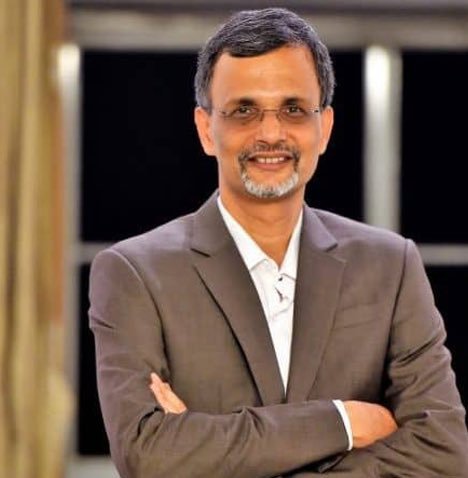CEA against concept of Universal Social Security as it may generate "perverse incentives"

- Country:
- India
Chief Economic Advisor (CEA) V Anantha Nageswaran on Friday dismissed the idea of Universal Social Security, saying it will create a ground for ''perverse incentives'' for people and dissuade them from seeking income generating opportunities.
He said the concept of Universal Social Security is not favourable for developing countries like India which need to focus on economic growth to take care of aspirations of its people.
For a developed country, which doesn't have income generating opportunities and employment generating opportunities, he said the State may have to step in and provide the universal basic income kind of coverage.
''For our country when natural economic growth should take care of many of the aspirations, it (Universal Social Security) may not be necessary. We may be creating the ground for perverse incentives for people to not make their own effort in seeking such opportunities. So therefore, Universal Social Security for India is not something that should be on the agenda in the near term,'' he said at an event here.
However, he said, support should be confined to those who may not be able to participate in the economic activities and bring them up to a point where they can meaningfully engage in the economy.
India has not reached the stage where it is a moral or economic necessity to have Universal Social Security, he added.
It is to be noted that former Chief Economic Advisor Arvind Subramanian during the first term of the Narendra Modi government had mooted the idea of uniform stipend to citizens.
Subramanian in the Economic Survey 2016-17 had proposed the idea of universal basic income (UBI) or a uniform stipend to every adult and child, poor or rich.
The survey had said UBI would guarantee all citizens enough income to cover their basic needs and would be easier to administer than the current anti-poverty schemes, which are plagued by waste, corruption and abuse.
With regard to Fiscal Responsibility and Budget Management (FRBM), Nageswaran said, the overall goal of ensuring fiscal stainability has not gone away at all even though the mechanism for doing so might vary depending on the compulsions of the time.
So, he said, 4.5 per cent gross fiscal deficit ratio is in place.
In the Budget speech, Finance Minister Niramala Sitharaman had said the fiscal deficit in 2022-23 was estimated at 6.4 per cent of GDP, which was consistent with the broad path of fiscal consolidation announced by her to reach a fiscal deficit level below 4.5 per cent by 2025-26.
To achieve the target, Nageswaran said, ''all we need to achieve is 3-5 years of 10 per cent steady nominal GDP growth and all these fiscal parameters will automatically improve because our growth rate is higher than the cost of borrowing.'' India's gross debt was at 81 per cent of GDP in 2005 which increased to 84 per cent now, he said, adding, only two other countries have done better than India -- Indonesia and Germany with a 2 per cent slippage in the overall debt to GDP ratio.
''Many other countries in the G20 and beyond have seen a slippage in their debt ratio by order of magnitude of 40 to 80 percentage points...we are at least held steady and we are a country which has a potential to grow in nominal terms between 10 and 11 per cent ''All that being said, I will also concede that we are at BBB minus. Even a country like the Philippines, which is much smaller than us has a BBB plus credit rating. And that means if you go from BBB minus to BBB plus your government's cost of borrowing will come down by 100 basis points and that is a fiscal stimulus,'' he said.
So, good fiscal health would translate into a good fiscal stimulus for citizens because interest rate will come down, he said.
''So we are aware of that and we are working towards it. Asset monetization and natural economic growth should help. There is no second opinion on the importance of keeping at it and achieving these numbers and getting to a better credit rating because it's not just a question of prestige, it's a question of actually putting more money in the hands of people through lower interest rates,'' he said.
He also said improving macroeconomic parameters have raised the prestige of India at global forum.
Sharing a personal experience, he said, his son, who was born in Singapore and currently studies in America made a statement that ''now a days even in the US, it is very cool to be an Indian. Modiji has made it very cool to be an Indian.''
(This story has not been edited by Devdiscourse staff and is auto-generated from a syndicated feed.)
ALSO READ
Boosting Indian Industry: Nitin Nabin Highlights Trade Deals and Budget Impact
US Supreme Court Decision Brings Relief to Indian Exporters
Venus Williams Makes Triumphant Return to Indian Wells
Indian Youth Congress Protest at AI Summit Sparks Controversy
Indian Open Race Walk: A New Era with Half and Full Marathon Events










